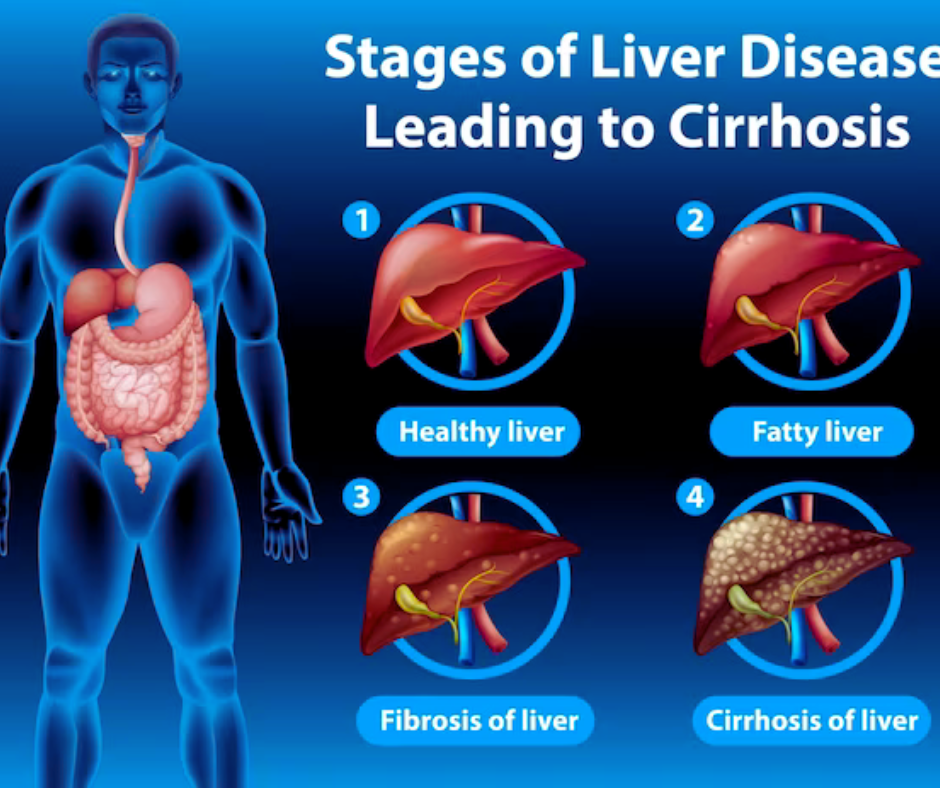introduction of Liver Failure :
The liver is a powerhouse in the human body, responsible for many important functions. From metabolizing nutrients to detoxifying harmful substances, its role is essential. However, when there is significant liver damage or loss of function, it can lead to a serious and life-threatening condition known as liver failure.
Liver failure occurs when the liver loses its ability to function properly. It can happen suddenly (acute liver failure) or gradually over time (chronic liver failure). Causes can range from viral infections such as hepatitis, long-term alcohol consumption, autoimmune diseases, genetic disorders, or adverse reactions to drugs and toxins.
Understanding Acute and Chronic Liver Failure:
Acute liver failure: This is characterized by rapid deterioration of liver function over a period of days or weeks. Causes may include viral infections such as hepatitis A, B, or C, drug-induced liver injury, or acetaminophen overdose.
Chronic liver failure: This condition progresses slowly over months or years, often due to chronic liver disease such as hepatitis B and C, non-alcoholic fatty liver disease (NAFLD), alcoholic liver disease or cirrhosis.
Symptoms of Liver Failure:
It is very important to recognize the symptoms of liver failure for timely intervention. Symptoms can vary depending on the stage and type of liver failure, but common symptoms include:
Jaundice (yellowing of the skin and eyes)
Abdominal pain and bloating
Fatigue and weakness
Nausea and vomiting
Loss of appetite and weight loss
Easy bruising and bleeding
Mental status changes or confusion
Causes and Risk Factors:
Hepatitis Infections:
- Hepatitis A, B, C, D, and E: These viral infections can cause inflammation and damage to the liver, leading to acute or chronic liver failure. Hepatitis B and C, in particular, can cause long-term liver damage if left untreated.
- Alcoholic liver disease:
Excessive alcohol consumption: Prolonged and heavy alcohol consumption can lead to fatty liver, alcoholic hepatitis and eventually cirrhosis, which increases the risk of liver failure.
- Non-alcoholic fatty liver disease (NAFLD):
Obesity and metabolic syndrome: Conditions such as obesity, insulin resistance, high blood sugar and high cholesterol can contribute to the development of NAFLD, which in some cases can progress to liver failure.
- Autoimmune conditions:
Autoimmune hepatitis: The body’s immune system mistakenly attacks the liver, leading to inflammation and possible liver damage, increasing the risk of liver failure
Impact on Daily Life:
Living with liver failure can significantly affect one’s daily life. Managing symptoms, adherence to treatment plans, and lifestyle
Dietary Restrictions: A carefully planned diet, often low in salt and protein, might be recommended to ease the burden on the liver and manage symptoms.
Medication Management: Patients might need to be vigilant about medications and their potential effects on the liver, requiring close monitoring by healthcare providers.
Regular Medical Check-ups: Routine visits to healthcare professionals are necessary for monitoring liver function, adjusting treatment plans, and addressing any emerging complications.
Diagnosing Liver Failure:
Diagnostic tests play an important role in detecting liver failure. Blood tests measure liver enzymes and assess liver function. Imaging tests such as ultrasound, CT scan or MRI help assess the condition of the liver and detect any abnormalities. A liver biopsy may be conducted to analyze tissue samples for a more accurate diagnosis.
Treatment Options:
Treatment for liver failure depends on its cause and severity. In some cases, lifestyle changes such as abstaining from alcohol, eating a healthy diet and managing underlying conditions can help slow the progression of liver disease. Medicines may be prescribed to manage symptoms or target specific causes, such as antiviral drugs for hepatitis.
Preventive Measures:
Prevention is key in safeguarding liver health:
Limit alcohol consumption: Excessive alcohol consumption can damage the liver over time.
Maintain a healthy diet: Eating a balanced diet rich in fruits, vegetables and whole grains can promote liver health.
Practice safe sex: To prevent hepatitis B and C infection, practice safe sex and avoid sharing needles.
Be careful with medications: Follow dosage instructions and be aware of potential liver-related side effects of medications.
Conclusion:
Liver failure is a serious condition that requires prompt attention. Recognizing symptoms, understanding their causes and taking preventative measures can go a long way in maintaining liver health. Timely diagnosis and appropriate medical intervention can significantly improve outcomes for patients with liver failure. Remember, a healthy lifestyle is fundamental to ensuring the health of this important organ.

Sexually Transmitted Diseases (STDs): Prevention, Symptoms, and Treatment

How to Sleep Faster for Kids ||How to Help Your Kids Fall Asleep Faster: Tips and Techniques

Amniotic Fluid Leak Test at Home: A Comprehensive Guide

The Marvelous World of Mushrooms: A Comprehensive Guide

Immediate Constipation Relief at Home: Effective Remedies and Tips

Urinary Tract Infections (UTIs) in Women: Causes, Symptoms, and Prevention

Sexually Transmitted Diseases (STDs): Prevention, Symptoms, and Treatment
INTRODUTION Sexually transmitted diseases (STDs), also known as sexually transmitted infections (STIs), are infections transmitted through sexual contact. This includes vaginal, anal and oral sex.

How to Sleep Faster for Kids ||How to Help Your Kids Fall Asleep Faster: Tips and Techniques
INTRODUCTION Getting babies to fall asleep quickly can be a challenge for many parents. With their boundless energy and curious minds, bedtime can quickly turn

Amniotic Fluid Leak Test at Home: A Comprehensive Guide
INTRODUCTION Pregnancy is a time filled with its fair share of excitement, anticipation and anxiety. One of the concerns is the fear of leaking amniotic

The Marvelous World of Mushrooms: A Comprehensive Guide
INTRODUCTION Mushrooms, those mysterious fungi that sprout in forests and fields, are fascinating organisms with diverse roles in nature and human life. From culinary delights

Immediate Constipation Relief at Home: Effective Remedies and Tips
INDRODUCTION Constipation is a common digestive problem that can cause discomfort and disrupt daily life. Although occasional constipation is normal, frequent occurrences can be frustrating.

Urinary Tract Infections (UTIs) in Women: Causes, Symptoms, and Prevention
INTRODUCTION Urinary tract infection (UTI) is a common and often painful condition that affects millions of women each year. Despite their prevalence, many women are
